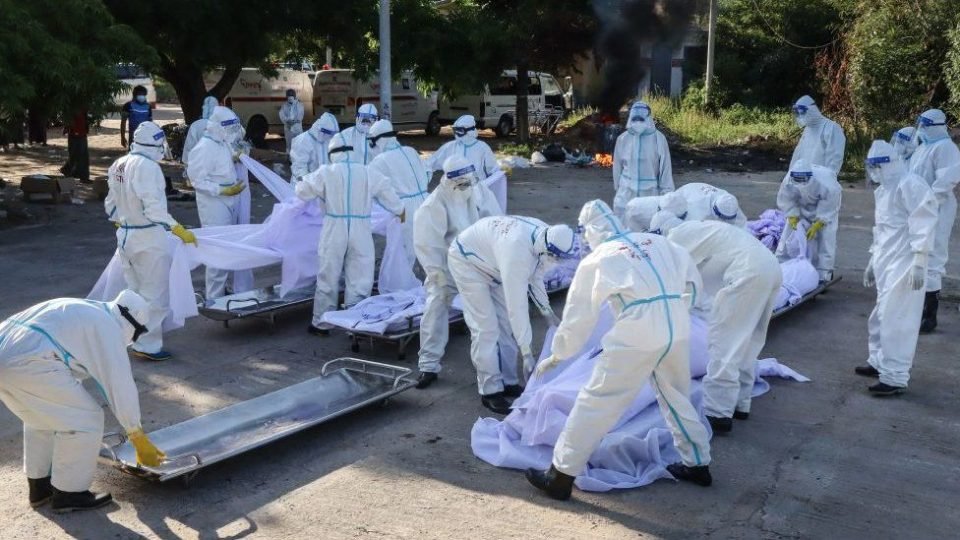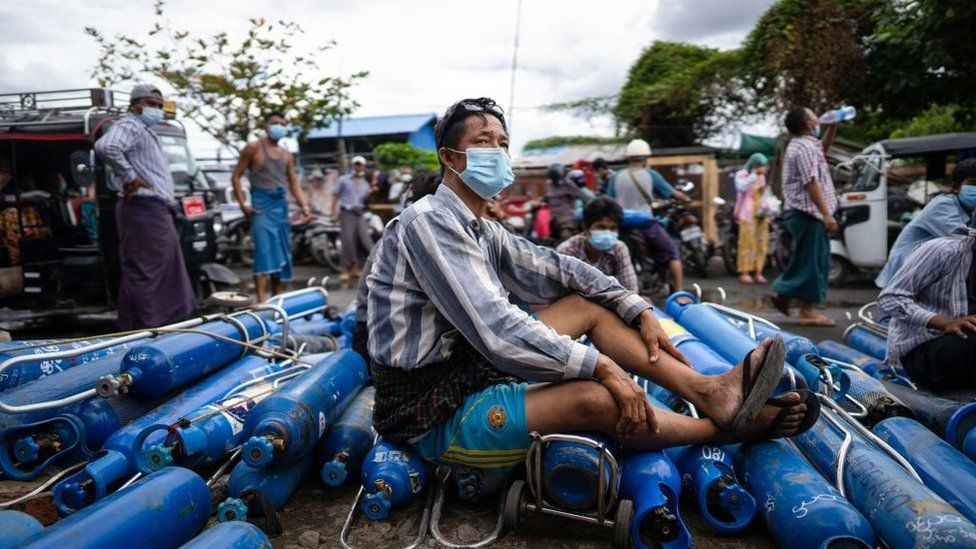
It’s a double whammy that has left Myanmar with no room to breathe – a military coup coupled with a pandemic that has killed thousands.
On 1 February, Myanmar’s military seized power from its civilian government, leading to a series of mass protests that show no signs of stopping.
Among the protesters were thousands of healthcare workers who walked out, leading to a collapse in the healthcare system and throwing Myanmar’s vaccination and testing response into chaos.
And now, a surge in coronavirus cases fuelled by the highly infectious Delta variant has dealt the country a fresh blow.
People are lining up outside of oxygen factories in the hope of buying or refilling cylinders, despite a government ban on direct oxygen sales to the public. Crematoriums are overflowing with bodies.
For some, there is no light at the end of the tunnel.
“We keep asking ourselves, are we going to die of Covid or are we going to die because of the impact of the political crisis?” said journalist Aye Mya, whose name we have changed for safety reasons.
“It’s like we have to choose the best way to die,” she said.
Catching Covid in jail
Myanmar has so far reported more than 280,000 cases and 8,200 deaths. But the case numbers are thought to be vast underestimates, because of limited testing. In July, Myanmar, which is home to around 54 million people, only tested between 9,000 and 17,000 people per day.
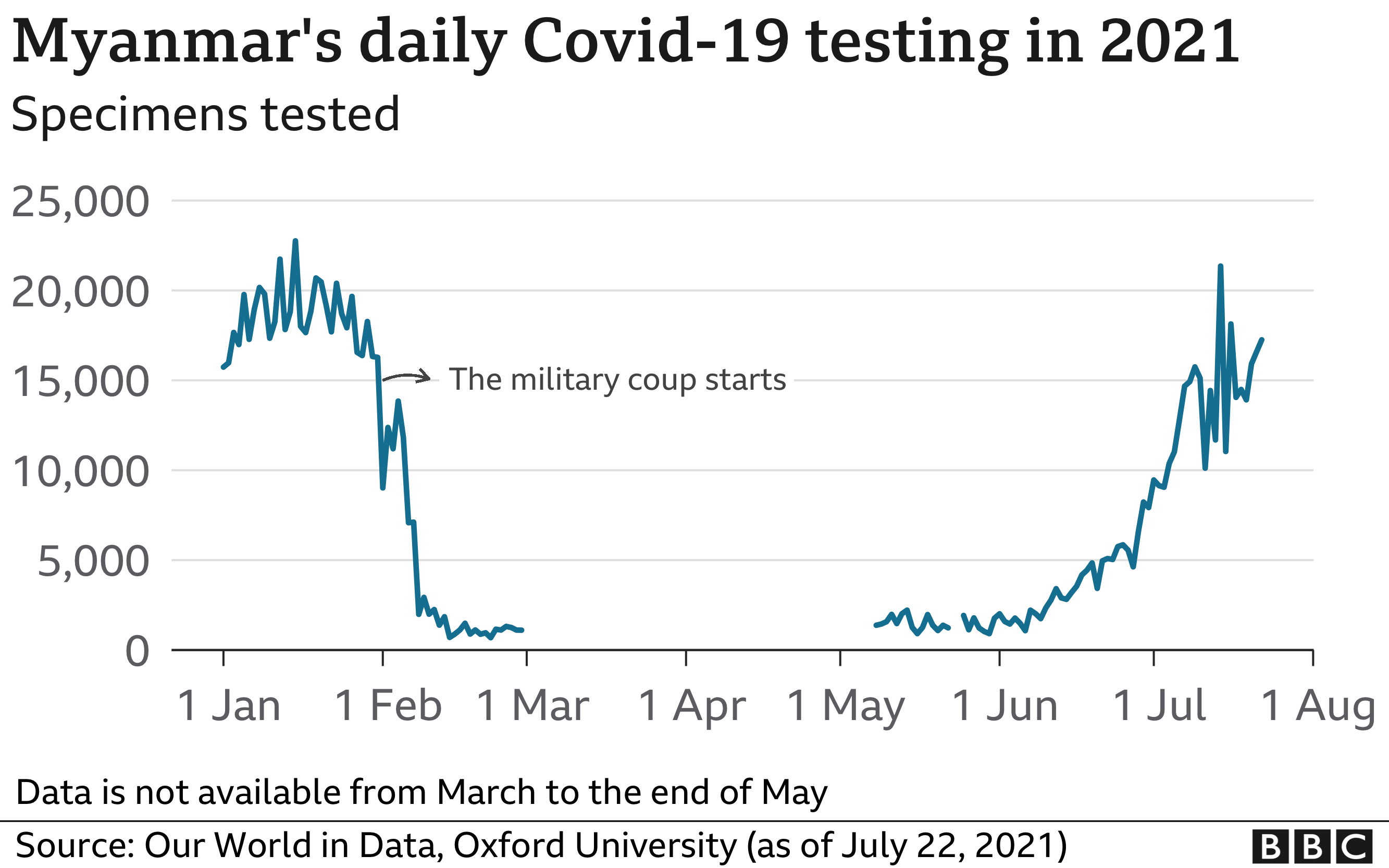
Deaths are likely undercounted too. Only those who die at medical facilities are included in the official figures.
Aye Mya believes her mother’s death was not counted, because she was never tested for Covid despite displaying symptoms.
She also fears her mother may have contracted it from her.
Although she tested negative after her mother’s death, Aye Mya believes she may have caught the virus while in jail – she was detained for four months after being arrested while reporting on the anti-coup protests. She developed symptoms soon after her release.
“In the prison, we had about 50 inmates in the same room and it was so crowded. I saw a few severely ill people around me,” she says.
“My mum was in good health when I got out of prison, she washed my hair and we ate together. But not long after my illness, she got sick. I recovered a few days later but her condition deteriorated. She could not eat and had difficulty breathing.”
“Sometimes I feel like we are being attacked with a biological weapon,” she said, recounting the horror of her mother’s death.
“When we got to the hospital, they said there was an oxygen shortage. We approached anyone with an oxygen cylinder and asked if there was any chance that we could rent it for a short period of time, but nothing was available. Mum died while we were hunting for oxygen around the hospital.”
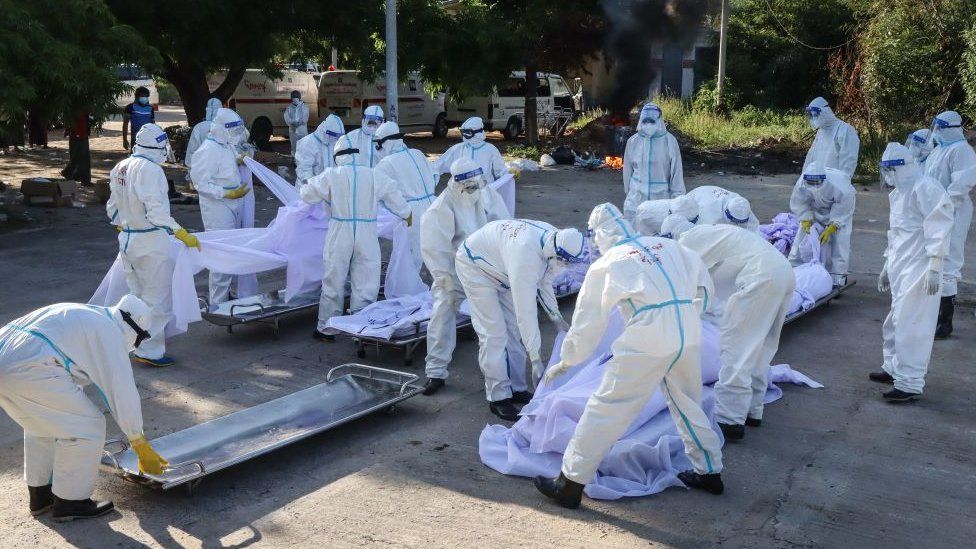
Oxygen has become one of Myanmar’s most valuable – and most controversial – commodities. Military leader Min Aung Hlaing has denied that the country has a shortage, saying people were stocking up due to “anxiety”.
The military has also restricted oxygen sales to private sellers, to prevent “hoarding”.
But some allege the army has been funnelling oxygen to military hospitals.
“Our friends who are still working in government hospitals told us that security forces came and took the oxygen cylinders away,” said a doctor working at an NGO, who did not want to be named.
Health system collapses
Myanmar’s medical system was always fragile, but despite limited resources it managed to weather the virus last year. The coup changed that.
“We were not very well prepared [for the pandemic]. On top of that, the army chose this precise time to mount a coup. The amount of disregard it has for the lives of its own people is staggering,” said Khin Zaw Win, the director of think tank Tampadipa Institute in Yangon.
“Other countries try to flatten the curve with an ultimate goal of preventing the medical system from collapsing,” said Dr Phyu Phyu Thin Zaw, a public health expert at the University of Hong Kong. “But in Myanmar, the coup caused the collapse of the health system even before the third wave.”
Medical workers were among the first group to go on strike against the coup. At least 72 of them, including the former head of the vaccination programme, are currently detained, and nearly 600 have warrants out for their arrest, according to the Assistance Association for Political Prisoners.
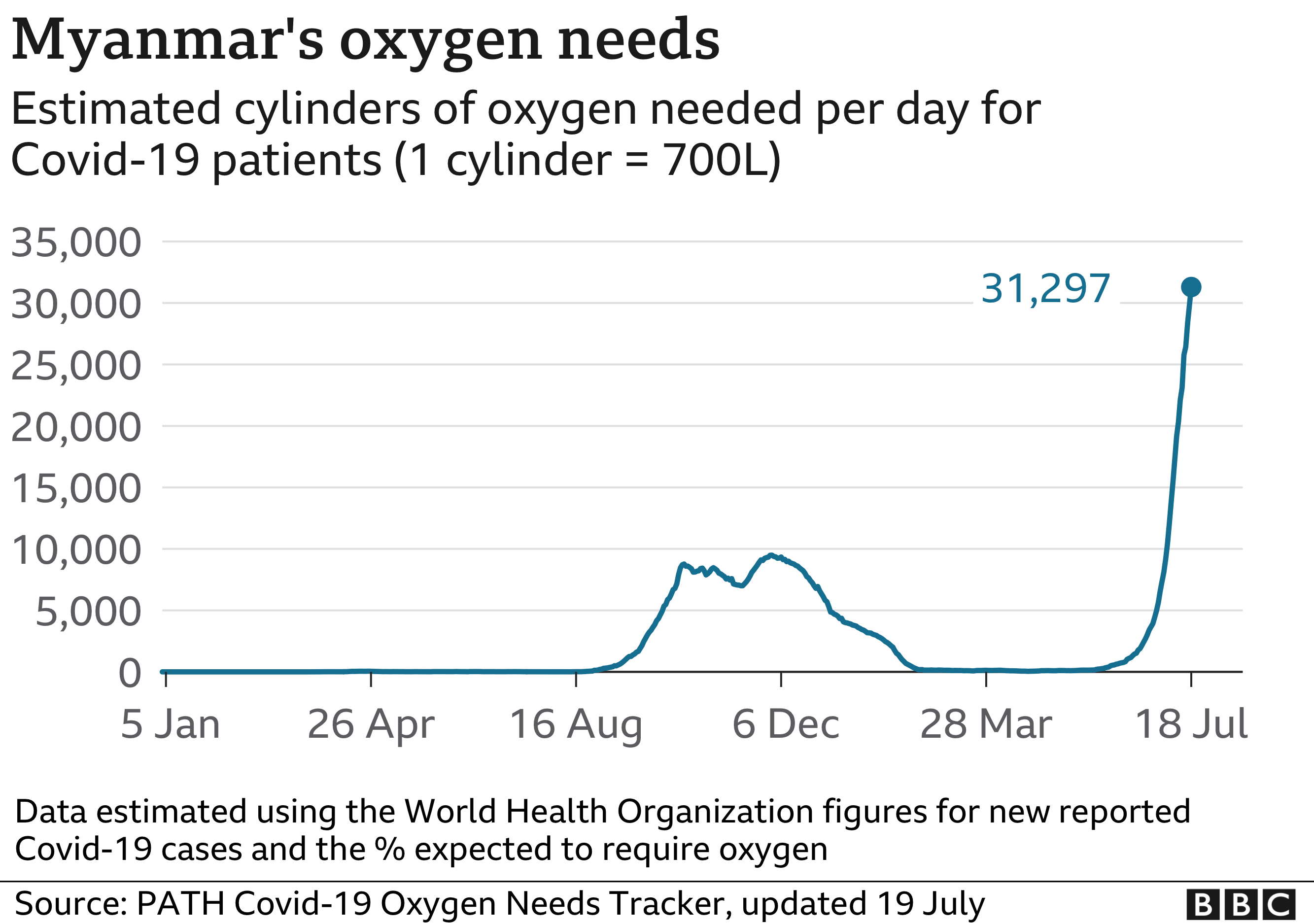
Free medical services provided by doctors and nurses participating in the civil disobedience are under threat too. The military has been accused of arresting several doctors after pretending that there was a Covid patient who needed a home visit. They denied these allegations.
They say about 60% of medical personnel are still working – a number that is most likely overestimated.
The coup has also led to the disruption of the country’s vaccination rollout, which was launched by the previous administration five days before the coup. The military has said six million Chinese vaccines and two million Russian vaccines will soon be delivered.
But they are coming too late, according to Khin Zaw Win, who questioned how effective the military would be in mobilising the people to take the jabs.
The impact of the situation is clearly visible outside Yangon’s cemeteries, where long lines of hearses, ambulances, and private cars carry the dead every day.
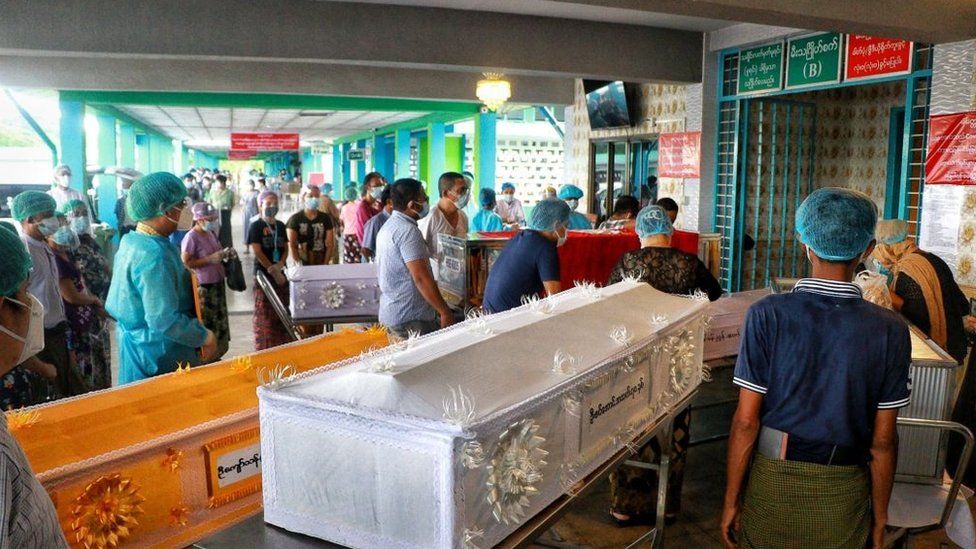
Sein Win Thai, of Bo Sein Funeral Service in Yangon, said he was overwhelmed.
“My own father died three days ago. It was in the morning at about 9am. I could not get a funeral car straight away for him even though I run a funeral service,” he said.
“When we [eventually] got to Yay Way cemetery, we had to wait for hours as there were many funerals ahead of him. All were Covid victims.”
According to Yangon Region Administration Council chief Hla Soe, there were about 1,500 bodies recorded on 19 July – vastly higher than the official nationwide death toll of 281.
Cemeteries in Yangon, he said, were only equipped to handle 300 bodies a day.
Aye Mya’s family managed to find a small oxygen cylinder in the end, though it was too late for her mother. Three other members of her family have now tested positive.
“Dad said he felt sorry whenever he saw this cylinder because he felt we could not save her life, because we did not get that in time,” she said.
“Now we have to closely look after each other as we do not want to lose any more family members.”
Additional reporting by BBC Burmese. Graphs by the BBC’s Aghnia Adzkia.

